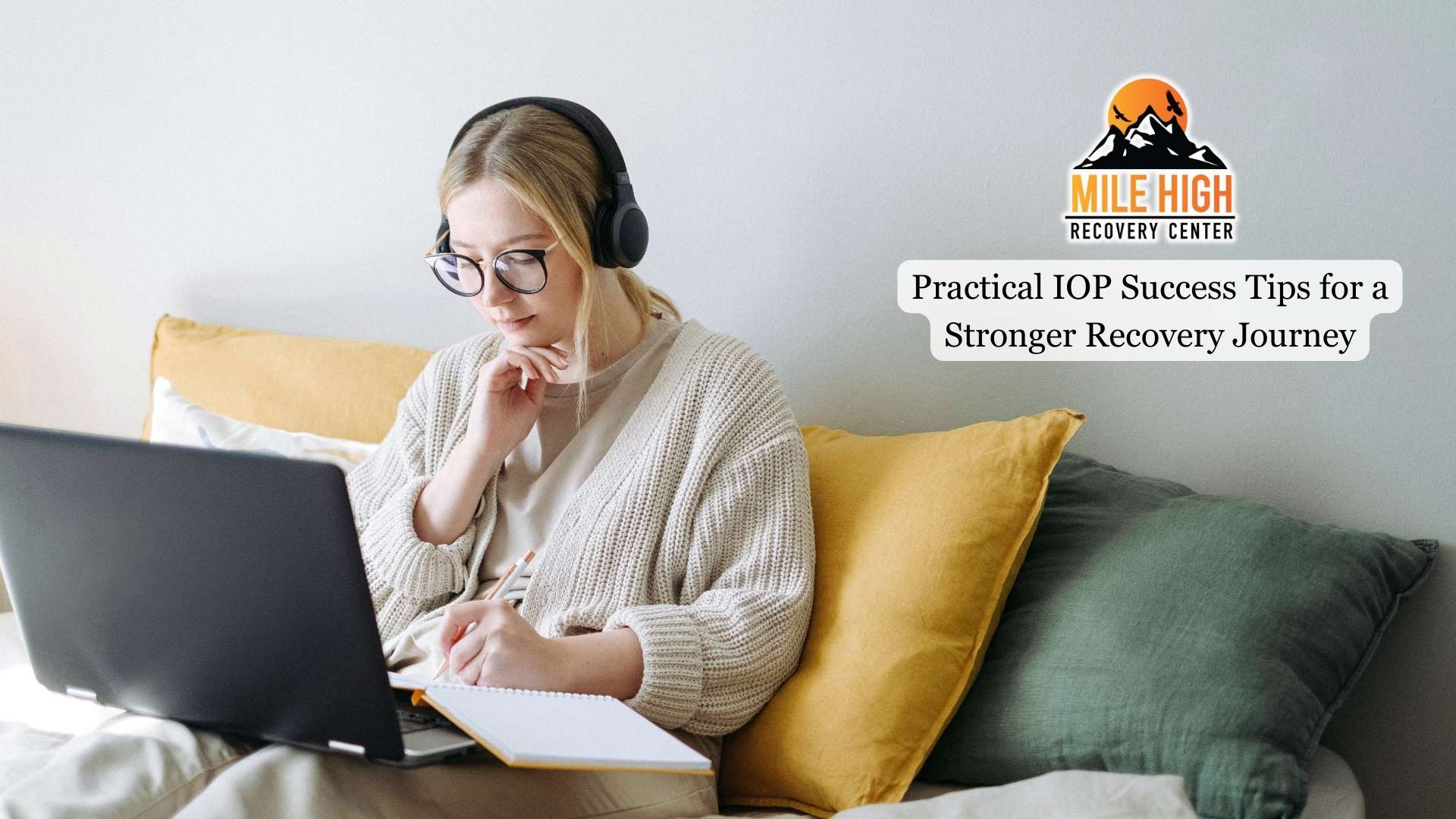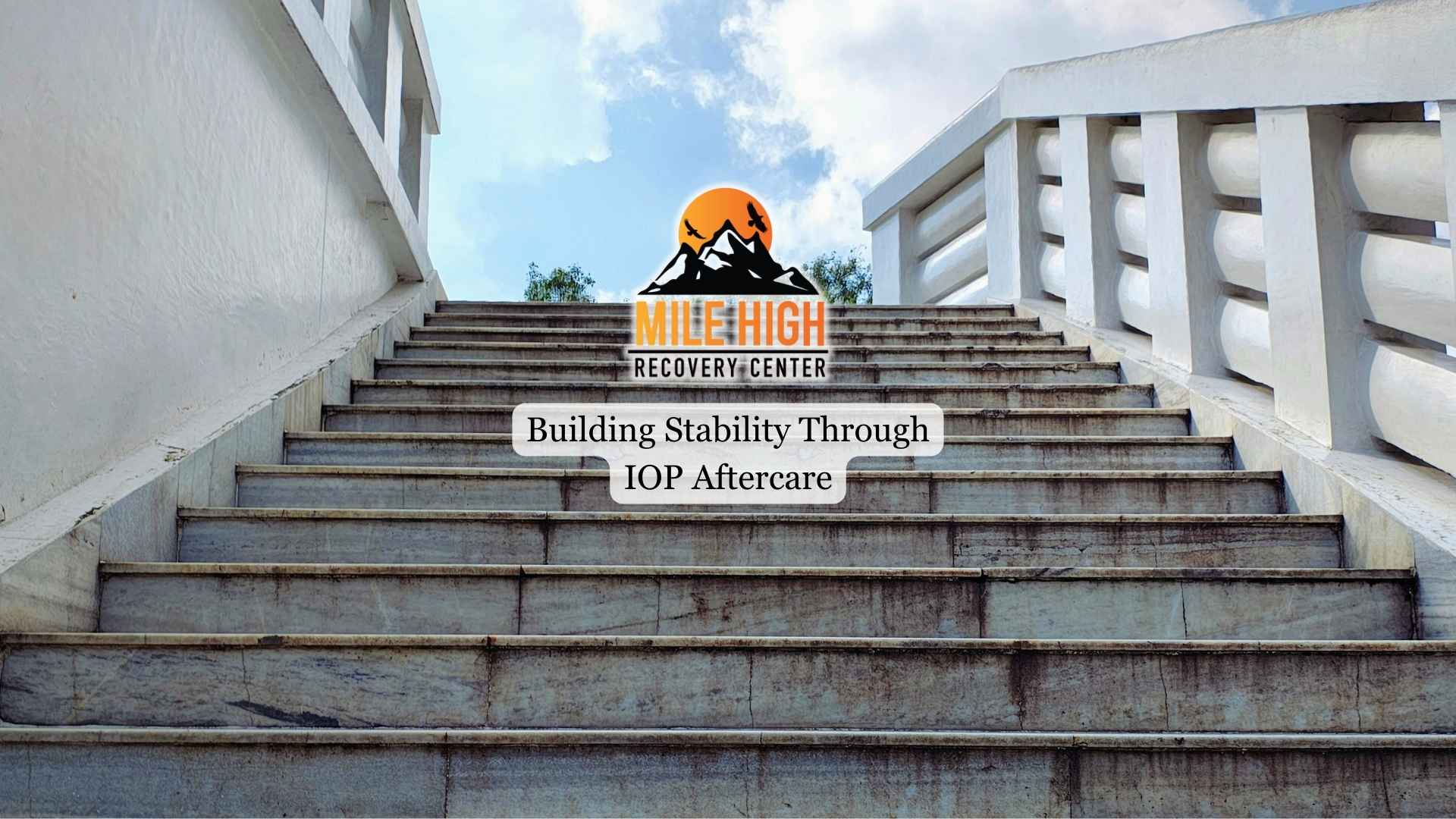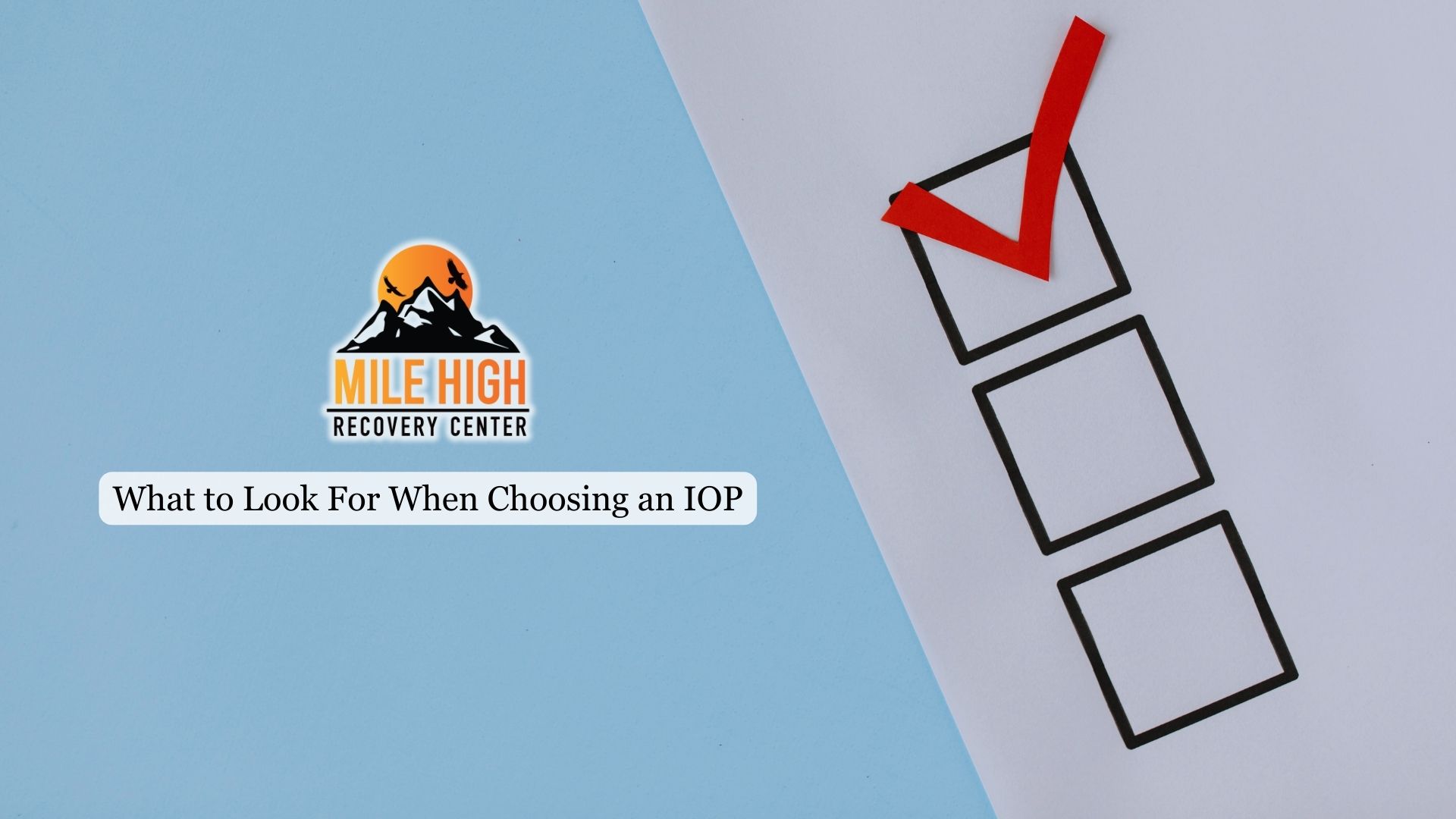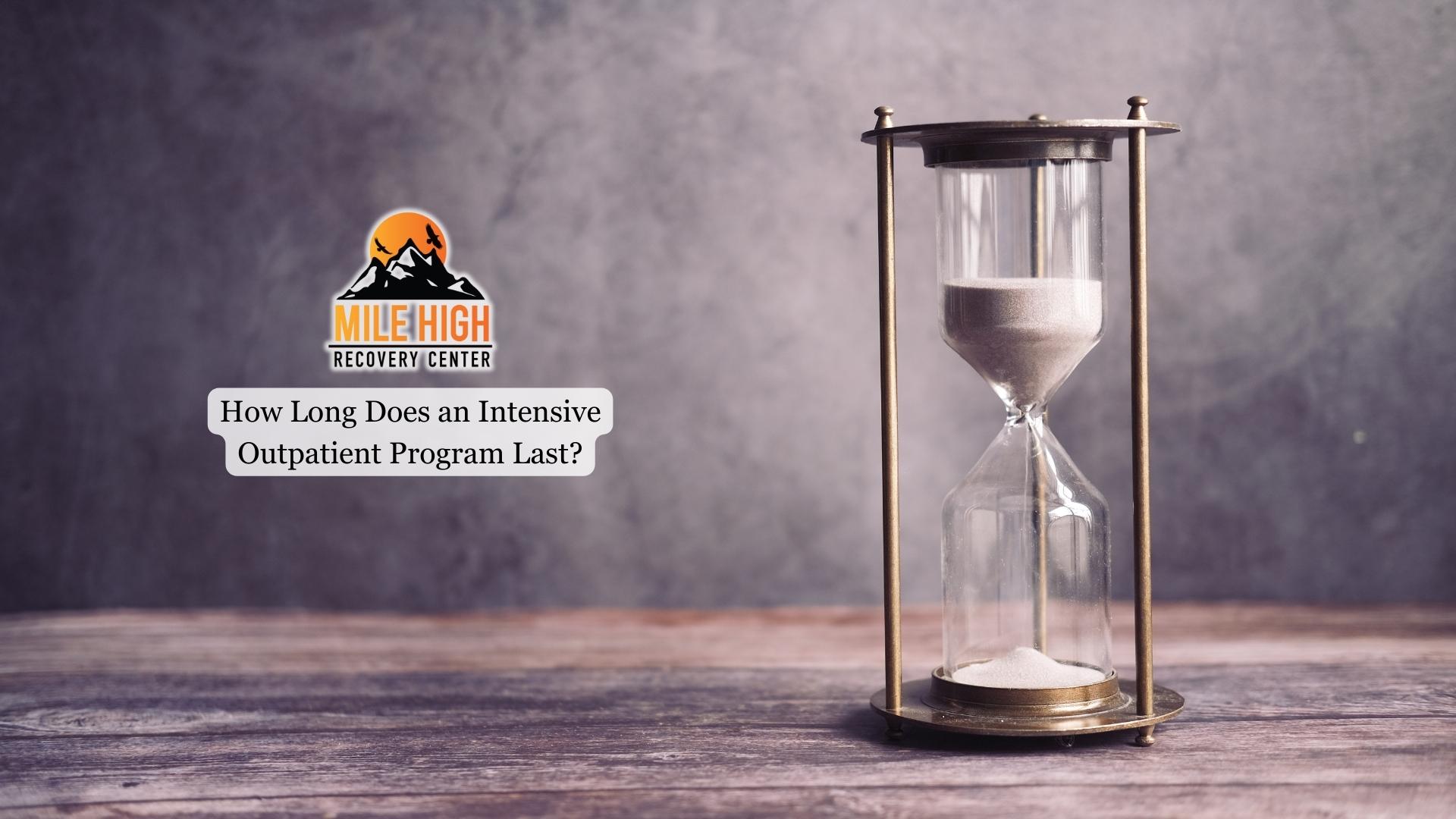Our LGBTQ IOP Treatment
Mile High Recovery Center (MHRC) stands out for its comprehensive approach to addiction treatment. We emphasize mental healing as well as physical, emotional, and spiritual well-being.
But, what truly sets us apart is our unwavering commitment to LGBTQIA+ inclusivity. Find inclusive, effective, and compassionate addiction treatment in Denver, Colorado, with Mile High Recovery.

About Mile High Recovery Center
- Substance use disorders (SUD)
- Co-occurring mental health challenges
- Trauma
Personalized Care
- Medical detox
- Inpatient rehab
- Partial hospitalization program (PHP)
- Intensive outpatient program (IOP)
- Outpatient program (OP)
- Sober living
- Drug rehab aftercare
Mile High Recovery Center boasts a passionate team of professionals. Our therapists specialize in diverse areas to ensure each person receives care that resonates with their needs. The team at MHRC is committed to supporting each person’s recovery journey.
Importance of LGBTQ+ Inclusivity in Addiction Treatment
- Sexual orientation
- Gender identity
- Discrimination
Understanding LGBTQ+ Inclusive IOP for Addiction Treatment
- Group therapy
- Individual therapy
- Educational sessions
Inclusivity in an IOP
Importance of an Inclusive LGBTQ IOP
- Reduced stigma: LGBTQ+ individuals face higher rates of discrimination and stigma. This creates barriers to seeking help. An inclusive IOP combats this by offering a supportive and accepting space.2
- Tailored interventions: Those who identify as part of the LGBTQ+ community may have unique experiences with addiction. These experiences may be related to discrimination, family rejection, and navigating a heteronormative society. Culturally competent therapists can address these specific concerns and offer relevant interventions.
The Need for Inclusivity in Treatment Programs
Those in the LGBTQIA+ community also experience higher rates of depression, anxiety, and suicidality. These are factors that can worsen addiction. That’s why an LGBTQ IOP, like that offered at Mile High Recovery Center, is extremely important.5
How to Find an LGBTQ-Inclusive IOP
- Look for programs with clear statements of inclusivity on their websites or outreach materials.
- Ask about staff training and experience working with LGBTQ+ clients.
- Ask about the program’s policies on confidentiality and non-discrimination.
- Seek recommendations from LGBTQ+ organizations or healthcare professionals familiar with the unique LGBTQ+ challenges and experiences.
Mile High Recovery Center’s Commitment to LGBTQ+ Inclusivity
Mile High's LGBTQ IOP Program
- Addressing specific traumas related to discrimination
- Exploring the intersection of identity and addiction
- Providing support for navigating challenges within the LGBTQ+ community
Our Culturally Competent Team
- Addiction counselors
- Therapists
- Case managers
- Psychiatrists
- Nurses and nurse practitioners
- Nutritionists
- Behavioral technicians
The Impact of Inclusivity in an LGBTQ IOP
- Feel empowered: Openly discussing their identities and experiences without fear of judgment fosters self-acceptance and empowerment.
- Develop trust: Trusting treatment providers is essential for positive outcomes. Inclusivity builds trust, encouraging people to engage fully in their recovery journey.
- Achieve lasting change: By addressing specific challenges and providing culturally competent care, MHRC increases the chances of long-term success for LGBTQ+ clients in recovery.
Core Components of an Inclusive LGBTQ IOP
Individualized Therapy
- The intersection of identity and addiction
- Address past traumas related to discrimination
- Work towards self-acceptance
Dedicated LGBTQ+ Group Therapy
- Navigating relationships
- Overcoming internalized stigma
- Coping with discrimination
Comprehensive Education
- LGBTQ+ history
- Terminology
- Legal rights
- Mental health and addiction
Additional Resources
- Relevant community resources
- Support groups
- Healthcare providers specializing in LGBTQ+ issues
Supportive Activities and Events
- Connection
- Relaxation
- Building positive relationships
Benefits of These Activities and Events
- Receive personalized care
- Find understanding and acceptance
- Build a supportive community
Addressing LGBTQ+ Specific Needs in Addiction Treatment
Trauma-Informed Care
Gender-Affirming and Culturally Competent Treatment
Addressing Internalized Homophobia, Transphobia, and Stigma
Exploring Intersections
- The stress of navigating discrimination
- Challenges within families or relationships
- Limited access to affirming healthcare

Finding Your Path to Recovery: MHRC’s Leadership in LGBTQ IOP Care
Our Approach
- Cognitive behavioral therapy (CBT)
- Dialectical behavior therapy (DBT)
- Eye movement desensitization and reprocessing (EMDR)
- Equine therapy
- Motivational enhancement therapy (MET)
- Meditation
- Music therapy
- Outdoor adventure therapy
Contact Mile High Recovery Center Today
- The Trevor Project: https://www.thetrevorproject.org/
- National Center for Transgender Equality: https://transequality.org/
Take the first step toward a brighter future. Your journey to recovery starts with finding the right support. Reach out today and discover the difference an LGBTQ+ inclusive program can make.
Resources
- https://psycnet.apa.org/record/2011-26777-002
- https://nida.nih.gov/research-topics/substance-use-suds-in-lgbtq-populations
- https://www.healthline.com/health/why-is-substance-abuse-worse-in-lgbtq-community
- https://www.ncbi.nlm.nih.gov/pmc/articles/PMC7704474/
- https://www.thetrevorproject.org/survey-2022/
- https://www.ncbi.nlm.nih.gov/pmc/articles/PMC10387489/






